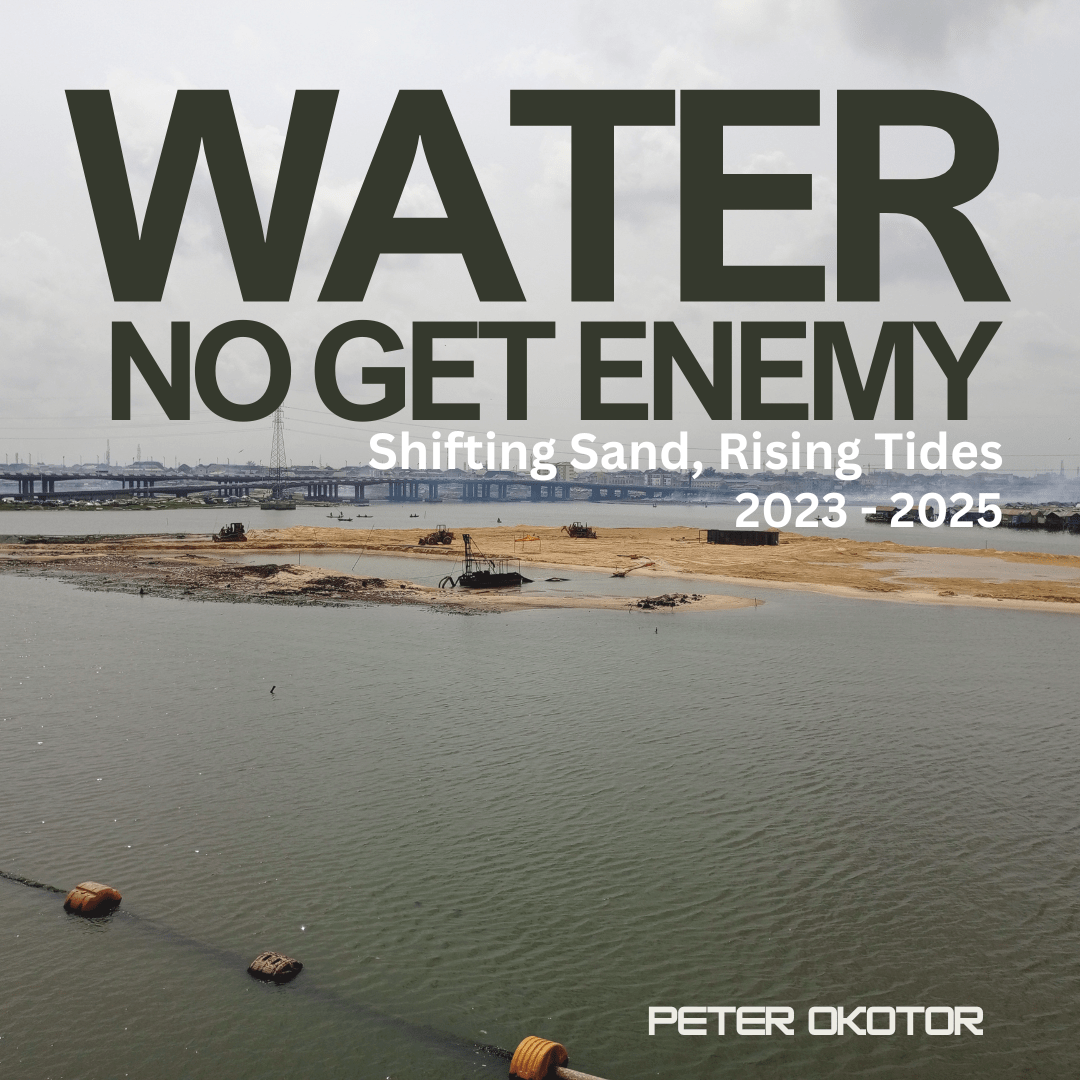
Lagos is a city in constant negotiation with water. The Atlantic presses against its shores, while inland, lagoons weave through its urban fabric. Yet, in this restless dialogue between land and water, power is unevenly distributed. The ongoing land reclamation efforts in Bar Beach, Makoko, Iyana Oworo and Oko Baba epitomize a paradox: the pursuit of progress through the erasure of communities that have long thrived with and on water.
Water No Get Enemy is an immersive sound piece that examines the ongoing land reclamation in waterfront communities in Lagos where water is both a home and a battleground. Borrowing its title from Fela Kuti’s song, the work highlights the paradox of water as an essential force—one that gives life, shapes culture, and sustains livelihoods, yet is being forcefully subdued by urban expansion.
As dredgers pour sand into the lagoon to create new land, entire ways of life are threatened with erasure. The sound piece captures this unfolding transformation through a sonic dialogue between the organic and the mechanical, the rhythmic life of the water and the disruptive force of reclamation. Through layered soundscapes, manipulated field recordings, spoken word from excerpt of One Night at Victoria Beach Poem by Gabriel Okara and word play, this piece creates an auditory map that travels back in time and of a city caught between the forces of capitalism and ecology, between engineered land and an ocean that does not forget.
Makoko, often dismissed as a slum, is in reality a sophisticated water-based ecosystem, an Afro-futurist model of urban resilience. But the sounds of wooden paddles cutting through the lagoon are met with the roar of encroaching developments. In Oko Baba, a community historically linked to timber processing, the crackling of burning wood and the hammering of carpenters are slowly being drowned out by the forces of urban expansion. And in Bar Beach, where the waves once sculpted the city’s coastline, Eko Atlantic now stands—a gleaming monument to privatized land, built on borrowed sand.
This piece is not just about loss. It is about memory, adaptation, and the sonic residue of resilience. It asks: What is the sound of a disappearing community? What traces do displaced lives leave behind? And in the face of erasure, how does sound become an archive of resistance?
Water may have no enemy, but in Lagos, it has been forced into battle. This work invites us to listen deeply, to hear what is being silenced, and to question what it means to reclaim land when the water is never truly gone.
